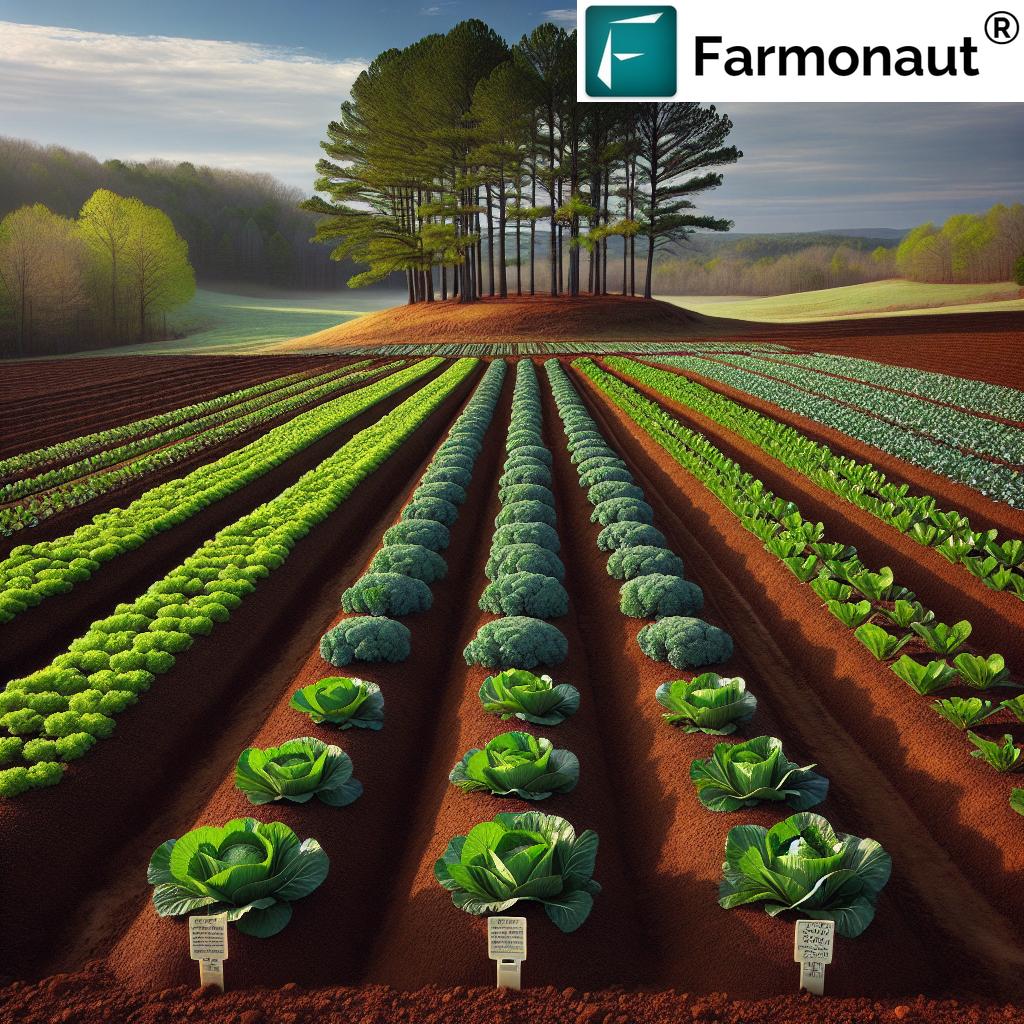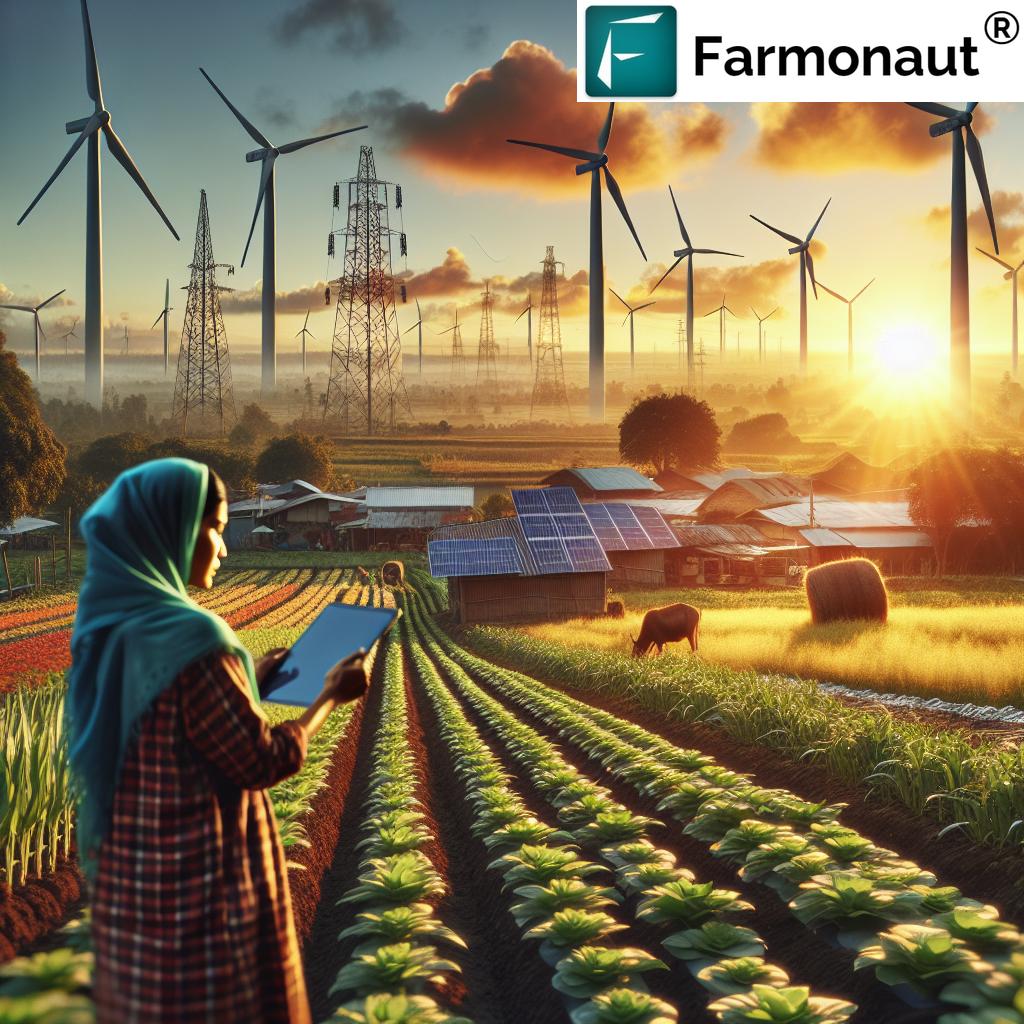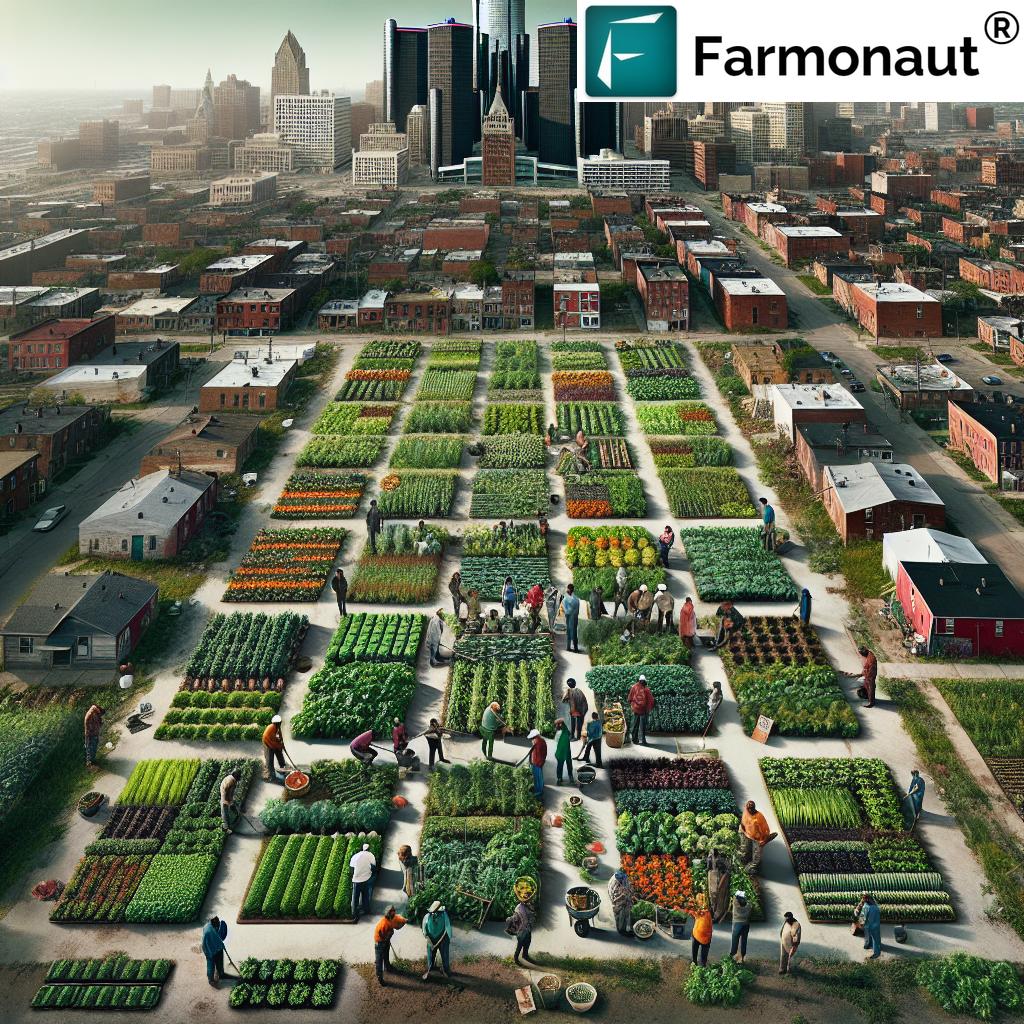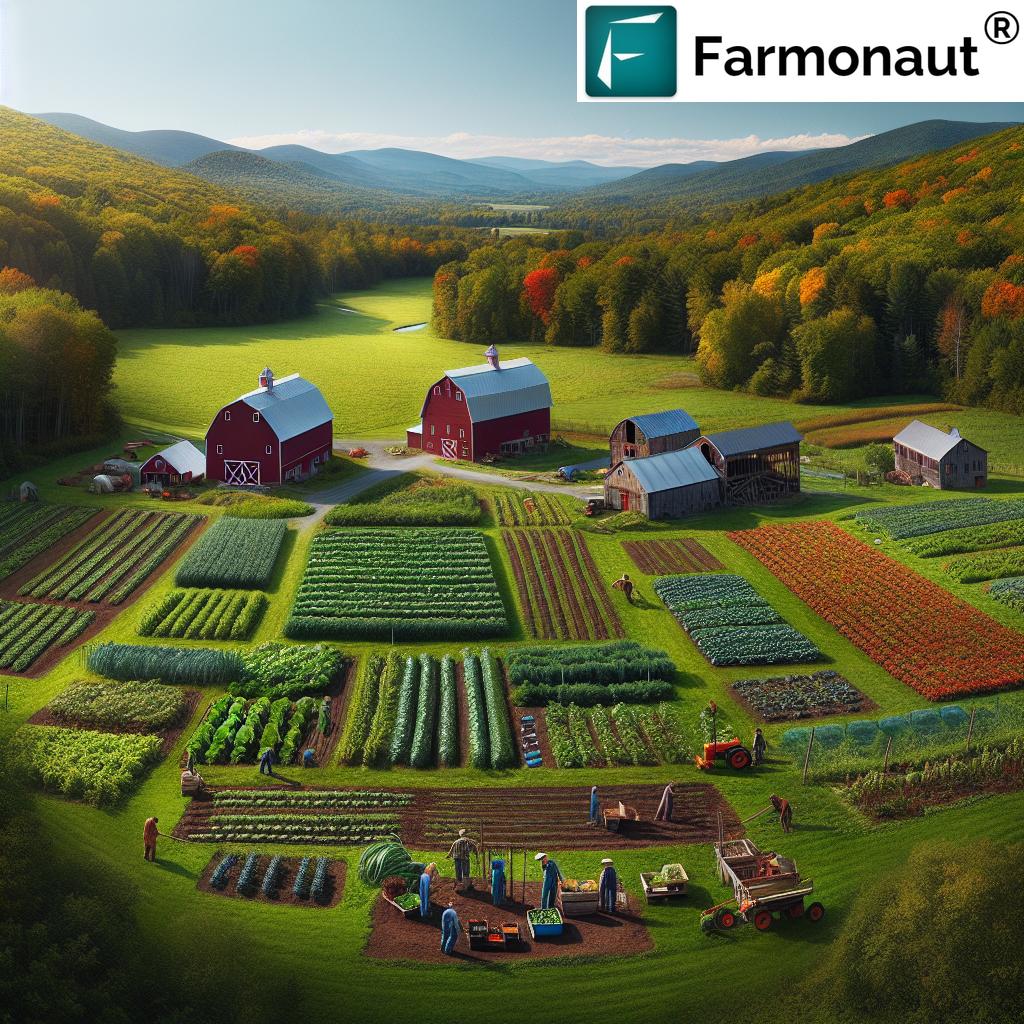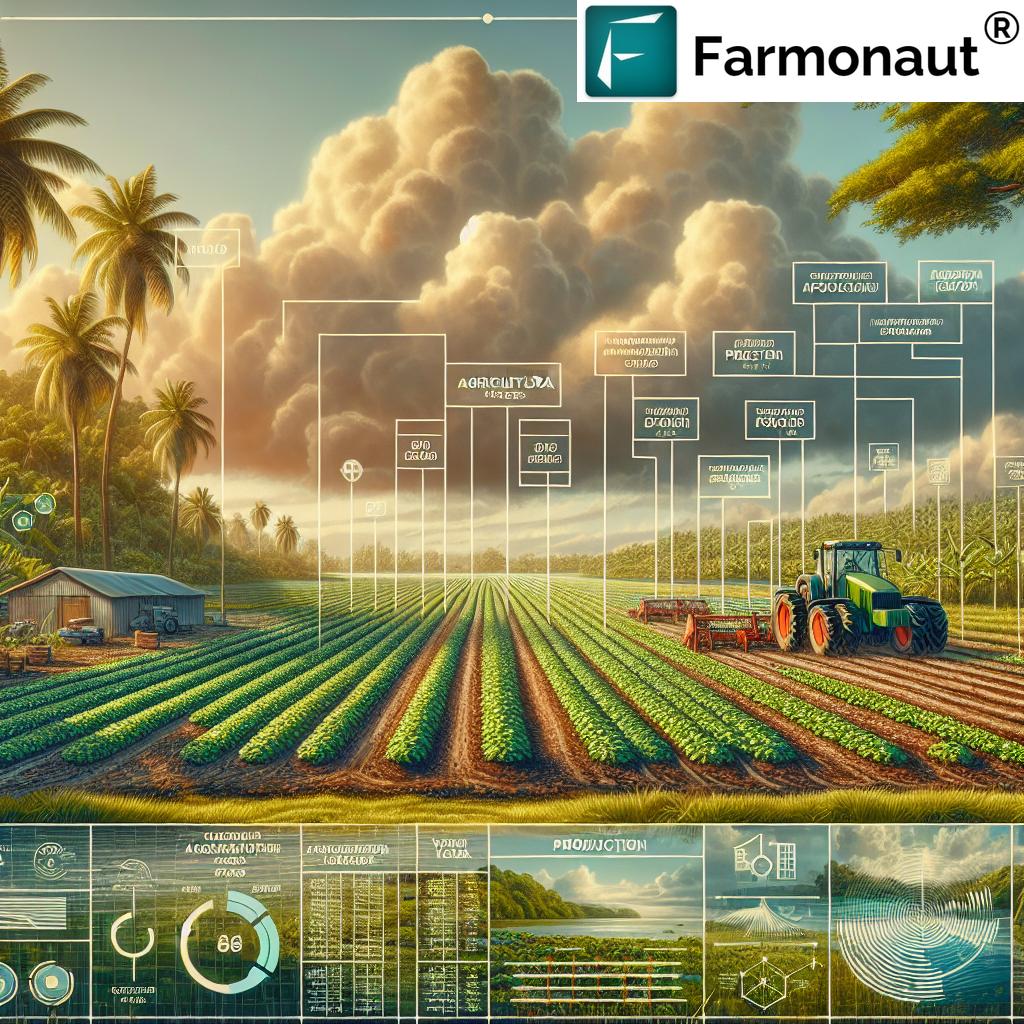Revolutionizing Midwest Agriculture: How Biotech Corn Boosts Sustainability and Food Security
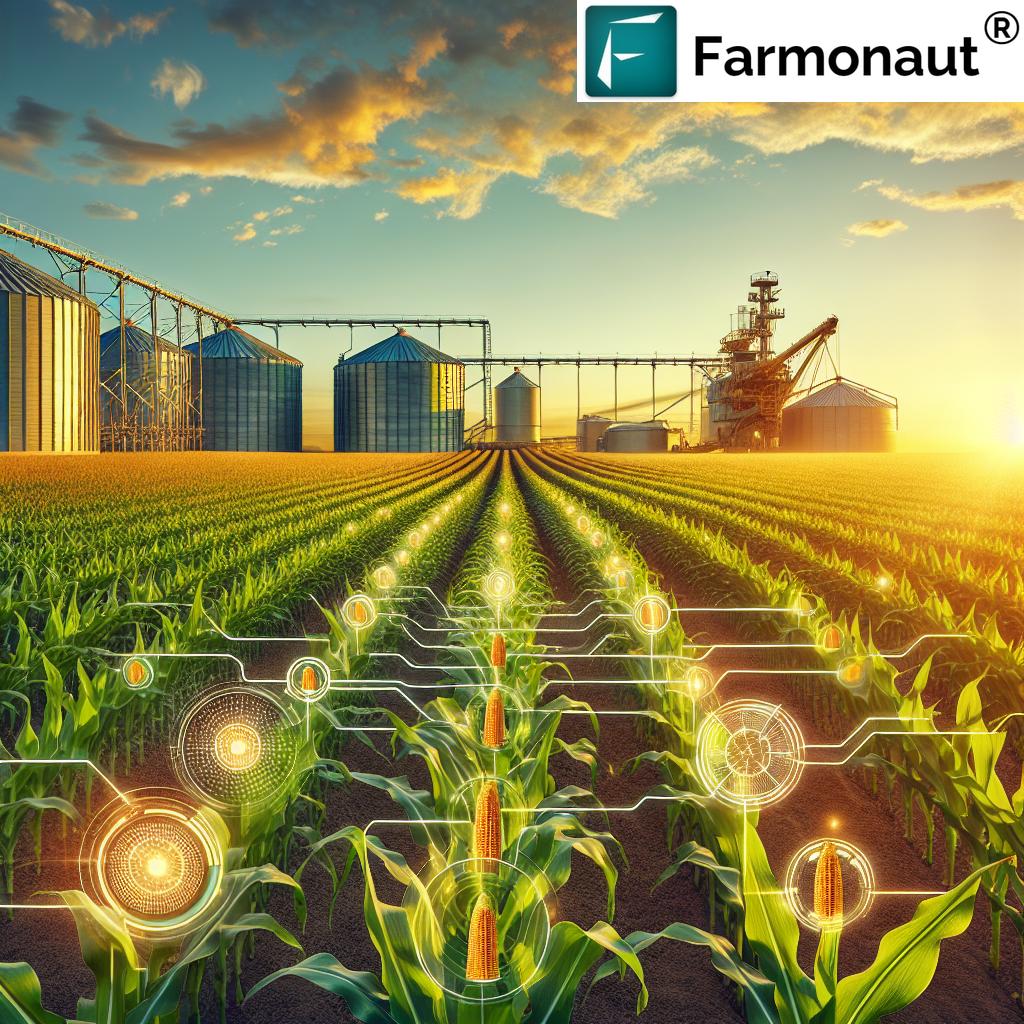
“Biotech corn has increased crop yields by up to 30% in some Midwest regions, boosting food security significantly.”
In the heartland of America, a quiet revolution is taking place. The Midwest, long known as the breadbasket of the United States, is witnessing a transformation in its agricultural landscape. At the forefront of this change is biotech corn, a crop that’s redefining sustainability and food security in the region and beyond. As we delve into this topic, we’ll explore how agricultural biotechnology is reshaping farming practices, benefiting growers, consumers, and the environment alike.
The Rise of Biotech Corn in the Midwest
The Midwest, with its vast prairies and fertile soils, has long been the epicenter of corn production in the United States. States like Iowa, Illinois, Nebraska, Kansas, and Missouri have been at the forefront of embracing agricultural innovations. In recent years, biotech corn has emerged as a game-changer, offering solutions to age-old farming challenges.
- Enhanced crop resilience
- Improved yield potential
- Reduced environmental impact
- Increased food security
These benefits have led to widespread adoption of biotech corn across the Midwest, transforming the region’s agricultural landscape. Let’s explore how this technology is making a difference.
Understanding Agricultural Biotechnology
Agricultural biotechnology, often referred to as agritech, involves the use of scientific techniques to modify living organisms or parts of organisms to produce or modify agricultural products. In the case of biotech corn, this typically involves genetic engineering to introduce desirable traits.
Some key aspects of agricultural biotechnology include:
- Gene editing for trait enhancement
- Marker-assisted breeding
- Molecular diagnostics for plant health
- Biotechnology for pest and disease resistance
These technologies have revolutionized modern agriculture, allowing for more precise and efficient crop improvement. As a result, we’re seeing crops that are not only more productive but also more resilient to environmental stresses.
Biotech Corn Benefits: A Closer Look
The adoption of biotech corn has brought numerous benefits to farmers, consumers, and the environment. Let’s examine some of these advantages in detail:
1. Increased Crop Yields
One of the most significant biotech corn benefits is the substantial increase in crop yields. Through genetic modifications, biotech corn varieties have been developed to better withstand pests, diseases, and environmental stresses. This resilience translates to higher yields per acre, contributing to improved food security and economic benefits for farmers.
2. Pest Resistance
Many biotech corn varieties are engineered to produce their own pesticides, specifically targeting harmful insects while leaving beneficial ones unharmed. This built-in pest resistance reduces the need for chemical pesticides, leading to more sustainable farming practices and reduced environmental impact.
3. Herbicide Tolerance
Some biotech corn varieties are designed to be tolerant to specific herbicides. This allows farmers to control weeds more effectively without damaging the corn crop, resulting in better weed management and potentially higher yields.
4. Drought Tolerance
With climate change leading to more frequent droughts, drought-tolerant biotech corn varieties have become increasingly important. These varieties can maintain yields even under water-stressed conditions, providing a crucial buffer against crop failures due to drought.
5. Improved Nutritional Content
Biotechnology has also been used to enhance the nutritional profile of corn. For example, some biotech corn varieties have been developed with higher levels of essential nutrients, contributing to better food quality and addressing nutritional deficiencies in populations that rely heavily on corn as a staple food.
Sustainable Farming Practices and Biotech Corn
The integration of biotech corn into Midwest agriculture has paved the way for more sustainable farming practices. These practices not only benefit the environment but also contribute to long-term agricultural viability.
Reduced Chemical Usage
With pest-resistant and herbicide-tolerant biotech corn varieties, farmers can significantly reduce their reliance on chemical pesticides and herbicides. This reduction in chemical usage leads to:
- Less environmental pollution
- Improved soil health
- Better water quality in surrounding areas
- Preservation of beneficial insects and microorganisms
Conservation Tillage
Biotech corn has facilitated the adoption of conservation tillage practices. By reducing the need for mechanical weed control, farmers can minimize soil disturbance, leading to:
- Reduced soil erosion
- Improved soil structure and health
- Enhanced carbon sequestration in the soil
- Better water retention
Water Conservation
Drought-tolerant biotech corn varieties enable more efficient water use in agriculture. This is particularly crucial in regions facing water scarcity or irregular rainfall patterns. The benefits include:
- Reduced water consumption in agriculture
- Improved crop resilience during dry spells
- Less strain on local water resources
These sustainable farming practices, enabled by biotech corn, are helping to transform the Midwest into a model of environmentally responsible agriculture.
The Role of Biotech Corn in Enhancing Food Security
Food security is a pressing global concern, and biotech corn plays a crucial role in addressing this challenge. By increasing crop yields and resilience, biotech corn contributes to a more stable and abundant food supply.
Increased Production
The higher yields achieved with biotech corn translate directly into increased food production. This is particularly important in the face of growing global population and changing dietary preferences.
Stability in Food Supply
The enhanced resilience of biotech corn to pests, diseases, and environmental stresses leads to more consistent crop production. This stability helps to buffer against shortages and price fluctuations in the food market.
Nutritional Enhancement
Some biotech corn varieties are developed with enhanced nutritional profiles, contributing to better nutrition in populations that rely heavily on corn as a staple food.
“The adoption of biotech corn has reduced pesticide use by approximately 8.2 million pounds annually in the United States.”
Challenges and Regulatory Landscape
Despite the numerous benefits, the adoption of biotech corn also faces challenges, particularly in terms of regulation and public perception.
Regulatory Hurdles
The development and commercialization of biotech corn varieties are subject to stringent regulatory processes. These regulations aim to ensure the safety of biotech crops for human consumption and the environment. Key aspects include:
- Extensive safety testing
- Environmental impact assessments
- Labeling requirements
- Post-market monitoring
Navigating these regulatory requirements can be complex and time-consuming for biotech developers and farmers alike.
Public Perception and Acceptance
Public opinion on genetically modified crops, including biotech corn, varies widely. Concerns often revolve around:
- Long-term health effects
- Environmental impact
- Corporate control of seed supply
- Potential for unintended consequences
Addressing these concerns through transparent communication and ongoing research is crucial for the continued adoption and success of biotech corn.
The Future of Biotech Corn in Midwest Agriculture
As we look to the future, the role of biotech corn in Midwest agriculture is poised to grow even further. Emerging trends and technologies are set to enhance the benefits of biotech corn while addressing current challenges.
Advanced Gene Editing Techniques
New gene editing tools like CRISPR-Cas9 are opening up possibilities for more precise and efficient crop improvements. These technologies could lead to:
- Faster development of new biotech corn varieties
- More targeted trait enhancements
- Potential for reducing regulatory hurdles
Climate-Resilient Varieties
With climate change posing increasing challenges to agriculture, the development of climate-resilient biotech corn varieties is becoming a priority. Future varieties may offer:
- Enhanced heat tolerance
- Improved water use efficiency
- Resistance to emerging pests and diseases
Integration with Precision Agriculture
The combination of biotech corn with precision agriculture technologies promises to further optimize farming practices. This integration could lead to:
- More targeted application of inputs
- Improved resource use efficiency
- Enhanced crop monitoring and management
At Farmonaut, we’re at the forefront of this integration, offering advanced satellite-based farm management solutions that complement the benefits of biotech corn. Our platform provides real-time crop health monitoring, AI-based advisory systems, and resource management tools, helping farmers make the most of their biotech corn crops.
International Impact and Trade Considerations
The adoption of biotech corn in the Midwest has implications that extend far beyond the borders of the United States. As a major corn exporter, the U.S. plays a significant role in global food security and agricultural trade.
Global Food Security
The increased productivity achieved through biotech corn contributes to global food security by:
- Enhancing the stability of global corn supplies
- Potentially reducing food prices
- Providing a buffer against crop failures in other regions
Trade Dynamics
The adoption of biotech corn also influences international trade dynamics. Key considerations include:
- Varying regulations on genetically modified crops across countries
- Potential trade barriers for biotech corn in some markets
- Opportunities for technology transfer to other corn-growing regions
Navigating these international considerations requires ongoing dialogue and cooperation between countries, regulatory bodies, and agricultural stakeholders.
The Role of Technology in Modern Agriculture
While biotech corn represents a significant advancement in crop science, it’s just one part of the broader technological revolution in agriculture. Modern farming increasingly relies on a range of innovative technologies to optimize production and sustainability.
Satellite Imagery and Remote Sensing
Satellite-based technologies are transforming how farmers monitor and manage their crops. At Farmonaut, we leverage multispectral satellite imagery to provide farmers with valuable insights into crop health, soil moisture levels, and other critical metrics. This technology enables:
- Early detection of crop stress
- Optimized irrigation management
- Targeted application of inputs
- Improved yield forecasting
By combining satellite imagery with biotech corn, farmers can maximize the potential of their crops while minimizing resource use.
Artificial Intelligence and Machine Learning
AI and machine learning algorithms are increasingly being applied to agricultural data, offering new levels of insight and decision support. Our Jeevn AI Advisory System, for example, analyzes satellite data and other inputs to generate customized advice for farmers. This technology can:
- Predict pest and disease outbreaks
- Optimize planting and harvesting schedules
- Provide personalized crop management strategies
- Enhance overall farm productivity and efficiency
Blockchain for Traceability
Blockchain technology is gaining traction in agriculture for its ability to enhance transparency and traceability in the supply chain. At Farmonaut, we’ve integrated blockchain-based traceability solutions that can:
- Track the journey of biotech corn from farm to consumer
- Verify sustainable farming practices
- Enhance consumer trust in food products
- Facilitate more efficient supply chain management
These technological advancements, when combined with biotech corn, create a powerful synergy that’s driving the future of agriculture in the Midwest and beyond.
Explore Farmonaut’s API for advanced agricultural insights
Comparative Analysis: Biotech Corn vs. Traditional Corn
To better understand the impact of biotech corn, let’s compare it with traditional corn varieties across several key metrics:
| Characteristics | Biotech Corn | Traditional Corn |
|---|---|---|
| Yield per Acre | 180 bushels | 150 bushels |
| Pesticide Use | Reduced by 30-40% | Standard application |
| Water Efficiency | 15-20% more efficient | Standard efficiency |
| Drought Resistance | High | Moderate |
| Nutritional Value | Can be enhanced | Standard |
| Environmental Impact | Reduced chemical use, less soil erosion | Higher chemical use, more soil disturbance |
| Food Security Contribution | High – stable yields, resilient crops | Moderate – more susceptible to environmental stresses |
This comparison clearly illustrates the advantages of biotech corn in terms of productivity, resource efficiency, and environmental impact. However, it’s important to note that the specific benefits can vary depending on factors such as local growing conditions, management practices, and the particular biotech traits employed.
The Intersection of Biotech and Traditional Farming Wisdom
While biotech corn represents a significant technological advancement, its successful implementation often relies on a blend of cutting-edge science and traditional farming knowledge. This intersection is where some of the most innovative and sustainable farming practices emerge.
Integrating Local Knowledge
Successful adoption of biotech corn often involves:
- Adapting biotech varieties to local conditions
- Combining biotech traits with locally adapted germplasm
- Incorporating traditional crop rotation and soil management practices
- Leveraging generations of farmer expertise in local ecosystems
Complementary Farming Practices
Biotech corn can be most effective when used in conjunction with other sustainable farming practices, such as:
- Cover cropping to improve soil health
- Integrated pest management strategies
- Precision agriculture techniques for optimized input use
- Conservation tillage to reduce soil erosion
At Farmonaut, we recognize the importance of this holistic approach. Our platform is designed to support both traditional and biotech farming methods, providing tools that can be adapted to various farming philosophies and practices.
Check out our API Developer Docs for integrating advanced agricultural data into your systems
The Economic Impact of Biotech Corn on Midwest Farmers
The adoption of biotech corn has had a significant economic impact on farmers in the Midwest. Understanding these economic implications is crucial for assessing the overall value of biotech corn to the agricultural community.
Increased Profitability
Biotech corn can contribute to increased profitability for farmers through:
- Higher yields leading to increased revenue
- Reduced input costs, particularly for pesticides and herbicides
- Lower labor costs due to simplified pest and weed management
- Potential premium prices for specialized biotech varieties
Risk Mitigation
Biotech corn also helps farmers manage various risks:
- Reduced crop loss due to pest and disease resistance
- Greater resilience to environmental stresses like drought
- More stable yields year-over-year
- Potential for improved crop insurance terms
Market Opportunities
The adoption of biotech corn can open up new market opportunities:
- Access to markets demanding specific traits (e.g., enhanced nutritional profiles)
- Potential for participation in sustainability-focused supply chains
- Opportunities in emerging bioeconomy markets
While these economic benefits are significant, it’s important to note that they can vary depending on factors such as farm size, local market conditions, and specific biotech traits employed. Farmers should carefully consider their individual circumstances when deciding to adopt biotech corn.
Environmental Considerations of Biotech Corn
The environmental impact of biotech corn is a topic of ongoing research and debate. While there are clear environmental benefits, it’s important to consider potential concerns as well.
Positive Environmental Impacts
- Reduced pesticide use, leading to less chemical runoff
- Lower greenhouse gas emissions due to reduced tillage and farm operations
- Improved soil health through conservation tillage practices
- Enhanced biodiversity in farm ecosystems due to targeted pest control
Potential Environmental Concerns
- Possibility of gene flow to non-biotech crops or wild relatives
- Potential development of resistant pests or weeds
- Impacts on non-target organisms in the ecosystem
- Long-term effects on soil microbiome
Addressing these environmental considerations requires ongoing research, monitoring, and adaptive management practices. At Farmonaut, we’re committed to supporting sustainable agriculture through our technology solutions, helping farmers optimize their use of resources and minimize environmental impacts.
The Role of Policy in Shaping Biotech Corn Adoption
Government policies play a crucial role in shaping the landscape for biotech corn adoption. These policies influence research, development, commercialization, and trade of biotech crops.
Regulatory Frameworks
Key aspects of biotech corn regulation include:
- Safety assessments for human and animal consumption
- Environmental impact evaluations
- Labeling requirements for biotech products
- Coexistence strategies for biotech and non-biotech crops
Research and Development Support
Government policies can encourage biotech corn innovation through:
- Funding for public research institutions
- Tax incentives for private sector R&D
- Public-private partnerships for crop improvement
Trade Policies
International trade of biotech corn is influenced by:
- Bilateral and multilateral trade agreements
- Import and export regulations for biotech crops
- Harmonization of biotech approval processes across countries
Understanding and navigating these policy landscapes is crucial for the continued development and adoption of biotech corn in the Midwest and beyond.
The Future of Food Security: Biotech Corn’s Global Impact
As we look to the future, the global impact of biotech corn on food security cannot be overstated. With a growing world population and changing climate patterns, the role of resilient and productive crops becomes increasingly important.
Addressing Global Hunger
Biotech corn has the potential to contribute significantly to global food security by:
- Increasing overall food production
- Improving nutritional content of staple crops
- Enhancing food stability in regions prone to environmental stresses
- Reducing post-harvest losses through improved crop traits
Adaptation to Climate Change
As climate change poses new challenges to agriculture, biotech corn offers solutions through:
- Development of drought-tolerant varieties
- Crops adapted to changing temperature patterns
- Varieties resistant to emerging pests and diseases
Technology Transfer and Global Adoption
The benefits of biotech corn can be extended globally through:
- International research collaborations
- Technology transfer to developing countries
- Capacity building in biotechnology and agronomy
At Farmonaut, we’re committed to supporting this global effort by providing advanced agricultural technologies that can be adapted to various contexts and scales of farming.
Conclusion: The Path Forward for Biotech Corn in the Midwest
As we’ve explored throughout this article, biotech corn is playing a transformative role in Midwest agriculture, offering solutions to long-standing challenges and opening up new possibilities for sustainable, productive farming. From increased yields and reduced environmental impact to enhanced food security and economic benefits for farmers, the advantages of biotech corn are substantial.
However, the path forward is not without challenges. Regulatory hurdles, public perception issues, and the need for ongoing research and development all require attention and thoughtful solutions. The successful integration of biotech corn into Midwest agriculture will depend on a collaborative effort involving farmers, researchers, policymakers, and technology providers.
At Farmonaut, we’re excited to be part of this agricultural revolution. Our satellite-based farm management solutions complement the benefits of biotech corn, offering farmers the tools they need to maximize the potential of their crops while promoting sustainability. As we look to the future, we see a Midwest agricultural landscape that is more productive, more resilient, and more sustainable, thanks to the power of biotechnology and advanced farming technologies.
The journey of biotech corn in revolutionizing Midwest agriculture is ongoing, and its full potential is yet to be realized. As we continue to innovate and adapt, the promise of a more food-secure and sustainable future grows ever brighter. The Midwest, with its rich agricultural heritage and forward-thinking approach, is poised to lead the way in this exciting new era of farming.
FAQ Section
1. What is biotech corn?
Biotech corn, also known as genetically modified (GM) corn, is corn that has been genetically engineered to exhibit specific traits such as pest resistance, herbicide tolerance, or enhanced nutritional content.
2. How does biotech corn contribute to sustainability?
Biotech corn contributes to sustainability by reducing the need for chemical pesticides, enabling conservation tillage practices, improving water use efficiency, and potentially reducing greenhouse gas emissions associated with farming operations.
3. Is biotech corn safe for consumption?
Extensive studies and regulatory assessments have found biotech corn to be as safe for consumption as conventional corn. However, ongoing research continues to monitor its long-term effects.
4. How does biotech corn impact food security?
Biotech corn enhances food security by increasing crop yields, improving crop resilience to environmental stresses, and potentially enhancing the nutritional content of corn-based foods.
5. What are the economic benefits of biotech corn for farmers?
Farmers can benefit economically from biotech corn through increased yields, reduced input costs (especially for pesticides), and potentially higher market prices for specialized biotech varieties.
6. How does Farmonaut support biotech corn farmers?
Farmonaut provides advanced satellite-based farm management solutions that complement biotech corn farming. Our tools offer real-time crop health monitoring, AI-driven advisory services, and resource management capabilities to help farmers optimize their biotech corn production.
7. What are the main challenges facing biotech corn adoption?
Key challenges include regulatory hurdles, public perception issues, concerns about long-term environmental impacts, and the need for ongoing research and development to address emerging agricultural challenges.
8. How does biotech corn contribute to climate change mitigation?
Biotech corn can contribute to climate change mitigation by reducing the need for tillage (which releases carbon from the soil), decreasing fuel use for farm operations, and potentially improving carbon sequestration in agricultural soils.
9. Can biotech corn coexist with organic farming?
With proper management practices and regulations, biotech corn can coexist with organic farming. This often involves establishing buffer zones and implementing strategies to prevent cross-pollination.
10. What does the future hold for biotech corn in the Midwest?
The future of biotech corn in the Midwest is likely to involve continued innovation, including the development of new traits to address emerging challenges such as climate change and evolving pest pressures. Integration with other advanced agricultural technologies, like those offered by Farmonaut, will play a crucial role in maximizing the benefits of biotech corn.




